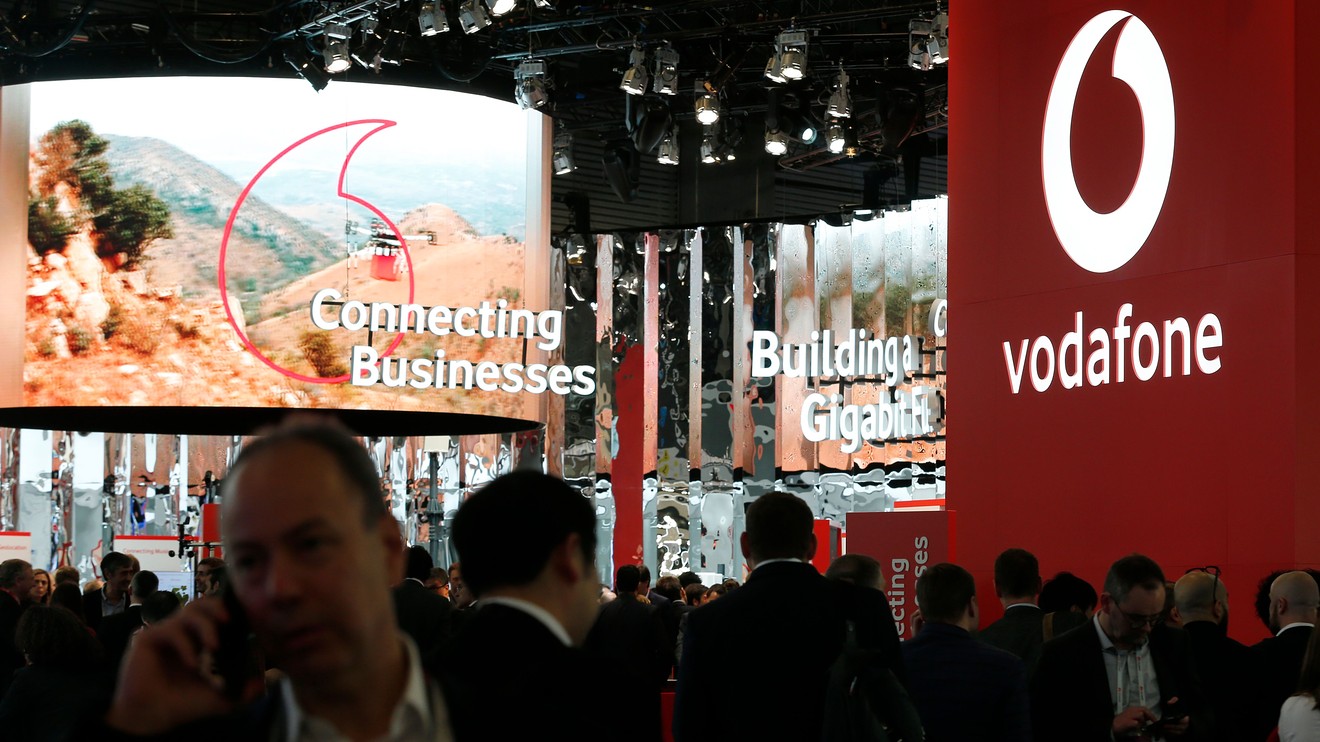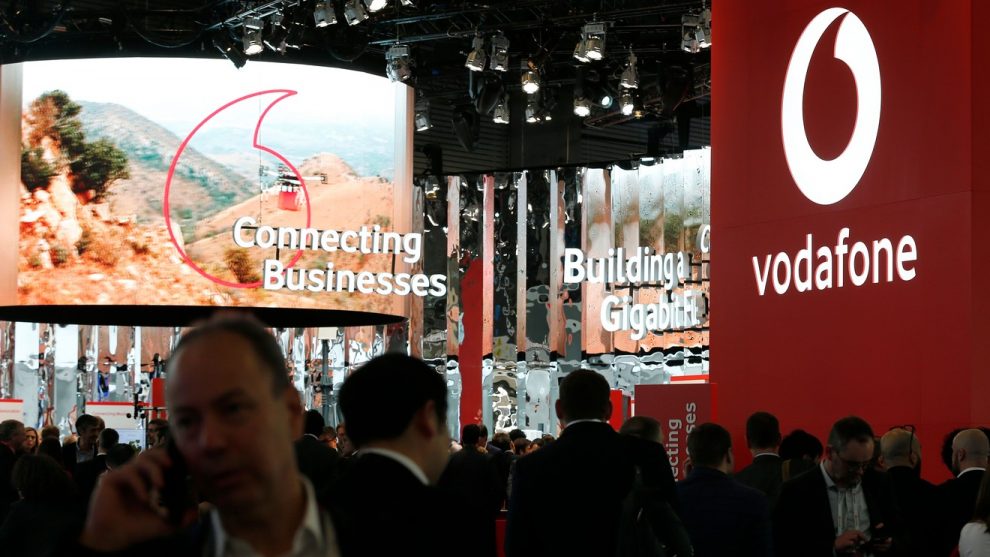
A top Vodafone Group PLC executive is leaving the firm to join Greensill, a fintech company with whom the telecom giant has previously entered into a complex and controversial financing arrangement.
Neil Garrod, Vodafone’s group treasury director, has been with the firm for more than a decade. During his tenure, Vodafone became a key Greensill client and a major investor in the GAM-Greensill Supply Chain Finance Fund, which is managed jointly by Greensill and Swiss asset manager GAM.
Vodafone VOD, +0.43% had invested about $1 billion in the fund earlier this year, but it has now completely exited its position, according to a spokesperson for the telecom company.
Garrod said he is “very excited” to be joining Greensill and “inside the engine room of a company that is truly disrupting financial services globally.”
Greensill is one of the leading providers of supply-chain finance, a lightly regulated but fast-growing financial sector. The company was founded by Chief Executive Officer Lex Greensill — a former Morgan Stanley and Citigroup banker — in 2011 and counts former U.K. Prime Minister David Cameron as a paid adviser.
News of Garrod’s expected move from Vodafone to Greensill follows a flurry of recent personnel activity at Greensill. Financial News reported last week that the company had hired Standard Chartered’s former European head of global corporate coverage, Sean Hanafin, to be executive chair. Hanafin also previously worked at Citi. Meanwhile, Jason Austin, another ex-banker who was also a co-founder of Greensill, recently stepped down from his role as president and is now a senior U.K. adviser.
In a statement, Greensill’s CEO said: “We can’t wait to see how he helps us further advance our global mission to unlock capital so our millions of customers can put it to work,” referring to Garrod.
In the spotlight
Greensill’s relationship with a GAM portfolio manager, Tim Haywood, was a key focus of a probe into a whistleblower’s allegations of wrongdoing at the Swiss asset manager, according to documents reviewed by FN.
Haywood was responsible for several billion dollars worth of GAM funds, including the GGSCF. He was suspended last year and then fired in February following the investigation. The move spooked investors who pulled billions of dollars from the funds he’d previously managed, sending GAM’s share price plummeting.
Haywood has repeatedly disputed the allegations against him and appealed to the company against the decision to fire him.
The GGSCF, set up in 2016, was nicknamed the “Vodafund” by Greensill staff because of Vodafone’s significance as an investor and a source of the underlying supply-chain assets, according to a person familiar with the matter. By late last year, Vodafone had invested about $1 billion in the fund, which had total assets of about $2.4 billion at that time.
FN has previously reported that, until recently, one of the biggest stakes in the fund—about $1.2 billion—was held by Greensill itself. Bloomberg data show that the investment was redeemed earlier this year. A Greensill spokesperson said the company occasionally holds a stake in the fund “as collateral” to manage the fund’s insurance exposure.
In recent weeks, the GGSCF has shrunk rapidly and now manages $350 million.
A Vodafone spokesperson said its investment in the GAM-Greensill fund was one of several “low risk” investments related to the around €18 billion the company has raised to fund the acquisition of assets owned by Liberty Global which is due to be completed this summer.
The spokesperson said: “Our investment in the GAM Fund housed a small portion of the €18 billion raised for the acquisition along with a number of other low risk instruments.
Earlier this month, the U.K. government was asked to investigate the GGSCF. Paul Myners, a former financial services minister, who now sits in the House of Lords, submitted a written question about the fund. Myners told FN that “the circumstances around these investments should be subject to review” by the UK’s top financial watchdog or another independent third party.
GAM stopped marketing the fund late last year, according to a person familiar with the decision. The company has been revising all the marketing materials related to the fund, the person said.
Last summer, U.S., private-equity firm General Atlantic invested $250 million into Greensill. And last month, Greensill announced that SoftBank’s Vision Fund had agreed to invest $800 million. A spokesperson for Greensill said the SoftBank investment is made up of common equity and convertible bonds, adding that the proceeds will be used to fund growth in international markets. The spokesperson also noted that Greensill has “significantly increased the capital position” of its German subsidiary, Greensill Bank AG.












